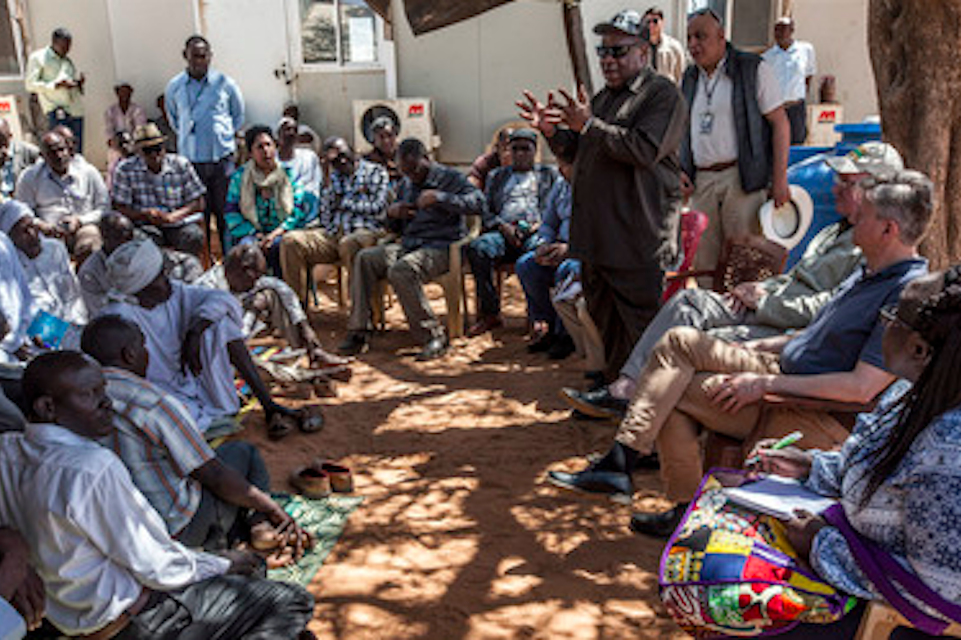Tackling COVID-19 and transitioning to peace in Sudan
Statement by Ambassador Jonathan Allen, UK Chargé d’Affaires to the UN, at the Security Council briefing on the situation in Darfur

Thank you, Mr President, and let me begin by thanking Under-Secretary-General DiCarlo and Lacroix and for their briefings. Let me also reiterate the United Kingdom’s condemnation of the attack and the attempted assassination on Prime Minister Hamdok.
Mr President, regrettably, Sudan, as with many parts of the world, is experiencing COVID-19, which comes on top of an already difficult socio-economic and humanitarian situation. On behalf of the United Kingdom, I want to send today a message of solidarity and support to the Government and people of Sudan in their efforts to respond to COVID-19 and mitigate its effects. As part of the United Kingdom’s $1 billion commitment since the COVID-19 outbreak began, we have given $6 million to the UN COVID-19 response plan for Sudan.
Mr President, one of the brightest spots on this Council’s agenda has been the beginning of Sudan’s transition to a democratic and peaceful nation. There has been much progress in the years since the removal of former President Bashir. And we encourage all Sudanese parties, as well as the international community, to remain fully committed behind Sudan to the successful implementation of the constitutional declaration, even during the challenges presented by COVID-19. And let me at this point particularly commend the positive role that the African Union has played and continues to play in Sudan’s political transition.
Mr President, the Government of Sudan and a number of armed movements have been engaging in talks for comprehensive peace across Sudan. That commitment to peace is promising, as is the positive response to the Secretary-General’s call for a global ceasefire by the parties to the Juba peace talks. But we now need to see all sides – in particular, the armed movements – engage constructively, immediately and without preconditions to conclude swiftly the negotiations on a comprehensive peace agreement. We call on them to do so.
Mr President, despite the positive progress has been made in Sudan, we remain concerned by the security situation in Darfur, which continues to be undermined by ongoing conflict in Jebel Marra, increasing levels of inter-communal violence and civilian displacement. Just this week, there were reports of an attack on a village in central Darfur, in which civilians were apparently killed and wounded, 70 homes burned down, and approximately 155 households displaced. The approximately 1.8 million internally displaced persons in Darfur remain particularly vulnerable to human rights violations and abuses. We cannot ignore the considerable challenges which remain in Darfur on and over the protection of civilians.
The United Kingdom fully supports the Government of Sudan’s request for a new, whole of Sudan UN mission that can provide support across the full range of issues related to the transition. We believe that this Council should support this request and a relationship between Sudan and the United Nations, underpinned by national ownership, partnership and collaboration. We should be ready to move quickly in response to Sudan’s declared needs. As Rosemary DiCarlo said today, the situation is dire.
We understand that the Government of Sudan would like the United Nations to support capacity-building, and we in the United Kingdom think that within this, there should be a role for capacity-building, training and mentoring also of police forces. In the time it takes to implement such capacity-building, we must ensure that a security vacuum does not fall and undermine efforts to achieve a comprehensive peace in Darfur, as well as the overall political transition in Sudan. And in a spirit of the new relationship between Sudan and the United Nations, we firmly believe that the new mission can and should be a partner to the Government of Sudan in responding to the ongoing protection of civilians’ challenges in Darfur, particularly in the IDP camps. So I’d like to ask Under-Secretary-General Lacroix for his assessment of the protection of civilians needs and risks in Darfur and the current capacity of the Government of Sudan to assume full responsibility for protection of civilians in Darfur. I would also be grateful if he could provide information on the type of deployment that would be required for the new mission to provide support to the government of Sudan on protection of civilians.
Let me also say we’ve taken note of the measures taken by the United Nations concerning peacekeeping, in particular the pause on rotations. And we understand the impact that this and, as Under-Secretary-General Lacroix also mentioned, around climatic conditions. We understand the impact that these will have on the timings of the planned drawdown of UNAMID.
Mr President, let me conclude by once again reaffirming the United Kingdom’s support for the government and people of Sudan in their endeavours for a peaceful, stable, prosperous and democratic future. We look forward to working with our colleagues in the Council to play our part in supporting those efforts.
Thank you very much.